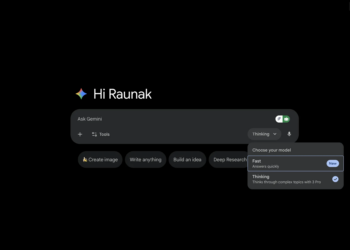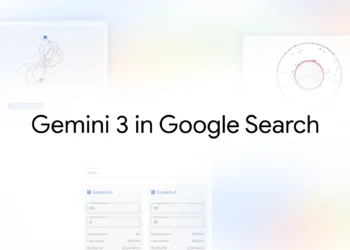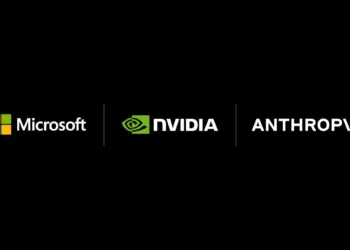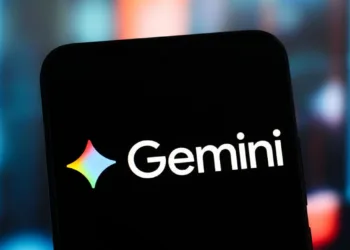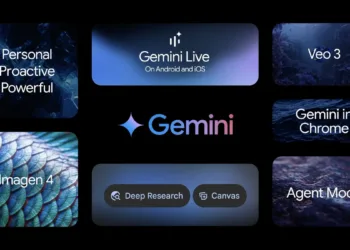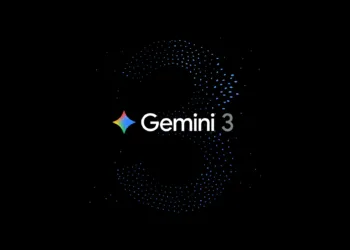DeepSeek Open-Source Gambit Updates!
In the ever-evolving landscape of artificial intelligence, a new player has burst onto the scene, sending shockwaves through the industry. DeepSeek, a Chinese AI startup with its sights set on the holy grail of artificial general intelligence (AGI), has become the talk of the tech world. But here’s the kicker: they’re not just making waves with their technology – they’re about to open the floodgates of their research to the world.
Imagine a small team of AI enthusiasts, working out of what might as well be a garage, suddenly challenging the titans of Silicon Valley. That’s DeepSeek for you. They’ve gone from relative obscurity to topping app store charts faster than you can say “AGI.” Now, they’re gearing up to share their secret sauce with the global developer community. It’s a move that’s equal parts bold and controversial, sparking debates from tech forums to the halls of Congress.
Table of Contents
As DeepSeek prepares to unleash its code repositories to the world, we’re left wondering: Is this the dawn of a new era of collaborative AI development, or are we witnessing the opening salvo in a new front of technological cold war? Buckle up, folks – we’re diving deep into the world of open-source AGI, geopolitical tech tensions, and the fine line between innovation and security concerns.

The Open-Source Revolution: DeepSeek Bold Move
Picture this: a tiny team of AI enthusiasts, fueled by nothing but passion and perhaps a bit too much caffeine, decides to take on the giants of the tech world. That’s DeepSeek for you, and they’re not just talking the talk – they’re walking the walk of open-source innovation.
In a move that’s got the tech world buzzing, DeepSeek announced plans to release five open source repos starting next week. These aren’t just any old code snippets – we’re talking about the “humble building blocks” of their online service, battle-tested and ready for the world to see.
But why is this such a big deal? Well, imagine if Colonel Sanders decided to plaster his secret recipe all over the internet. That’s essentially what DeepSeek is doing with their AI tech. It’s a level of transparency that’s almost unheard of in the cutthroat world of AI development.
“As part of the open-source community, we believe that every line shared becomes collective momentum that accelerates the journey,” DeepSeek proclaimed in a social media post that’s since gone viral. They’re not just opening their code – they’re throwing open the doors to their entire development process.
This isn’t just about sharing code – it’s about fostering a community. DeepSeek is betting big on the power of collective brainpower, hoping that by sharing their work, they’ll spark a chain reaction of innovation that could fast-track the path to AGI.
Rising Star or Falling Meteor? The DeepSeek Controversy
But hold onto your hard drives, folks, because DeepSeek’s meteoric rise hasn’t been all sunshine and rainbows. As quickly as they’ve ascended to the top of the app charts, they’ve found themselves in the crosshairs of controversy.
The parallels to the TikTok saga are hard to ignore. Just like the viral video app, DeepSeek is facing intense scrutiny over its data practices and potential ties to the Chinese government. U.S. lawmakers are already beating the war drums, calling for a ban on the app amid concerns that it could be a Trojan horse for data harvesting.
And it’s not just politicians raising eyebrows. Tech giants Microsoft and OpenAI have launched a probe into a potential breach of OpenAI’s systems, with fingers pointing towards a group allegedly linked to DeepSeek. It’s like a tech thriller come to life, complete with allegations of corporate espionage and international intrigue.
The controversy has sparked a heated debate in the tech community. On one side, we have those hailing DeepSeek as the Robin Hood of AI, democratizing access to cutting-edge technology. On the other, skeptics warn of a potential Pandora’s box of privacy violations and national security risks.

The Balancing Act: Innovation vs. Security
So, here’s the million-dollar question: Can DeepSeek thread the needle between open innovation and addressing very real security concerns?
Their open-source initiative seems timed to perfection, aiming to deflect criticism and reassure skeptics about their intentions. By pulling back the curtain on their technology, DeepSeek is essentially saying, “Look, we’ve got nothing to hide!”
But will this be enough to satisfy the powers that be? That’s the real cliffhanger. As DeepSeek continues to push the boundaries of AGI research, they’re walking a tightrope between two worlds – the open, collaborative spirit of the developer community and the cautious, security-minded approach of regulators.
The Road Ahead: A New Chapter in AI Development?
As we stand on the brink of this open-source revolution, one thing’s for certain: The AI landscape will never be the same. DeepSeek’s bold move could be the catalyst that propels us into a new era of collaborative AI development, where breakthroughs are shared freely and innovation knows no borders.
Or, as some fear, it could be the opening salvo in a new kind of technological arms race, with nations scrambling to harness the power of open-source AGI for their own ends.
Whatever the outcome, DeepSeek’s journey from unknown upstart to industry disruptor is a testament to the breakneck pace of AI innovation. As they prepare to unlock their code repositories, the world watches with bated breath. Will this be the moment that democratizes AGI research, or will it be remembered as a cautionary tale in the annals of tech history?
One thing’s for sure – in the high-stakes world of AI development, DeepSeek is playing for keeps. And whether you see them as visionaries or reckless disruptors, there’s no denying that they’ve changed the game. The question now is: Are we ready for what comes next?
DeepSeek vs ChatGPT vs Grok AI vs Google Gemini: Which AI Rules the Chatbot World?
Frequently Asked Questions
Q1: What exactly is DeepSeek planning to open-source?
DeepSeek has announced plans to release five code repositories that form the foundation of their online AI service. These repositories contain what the company calls “humble building blocks” that have been tested and deployed in real-world scenarios. While the exact contents aren’t fully known, they’re likely to include core components of DeepSeek’s AI models and infrastructure.
Q2: How does DeepSeek’s open-source approach differ from other AI companies?
Unlike many major AI companies that keep their most advanced models proprietary, DeepSeek is taking a radically transparent approach. By open-sourcing key components of their technology, they’re inviting collaboration and scrutiny from the global developer community. This stands in stark contrast to companies like OpenAI, which have been criticized for moving away from their initial open-source ethos as they’ve grown more successful.


